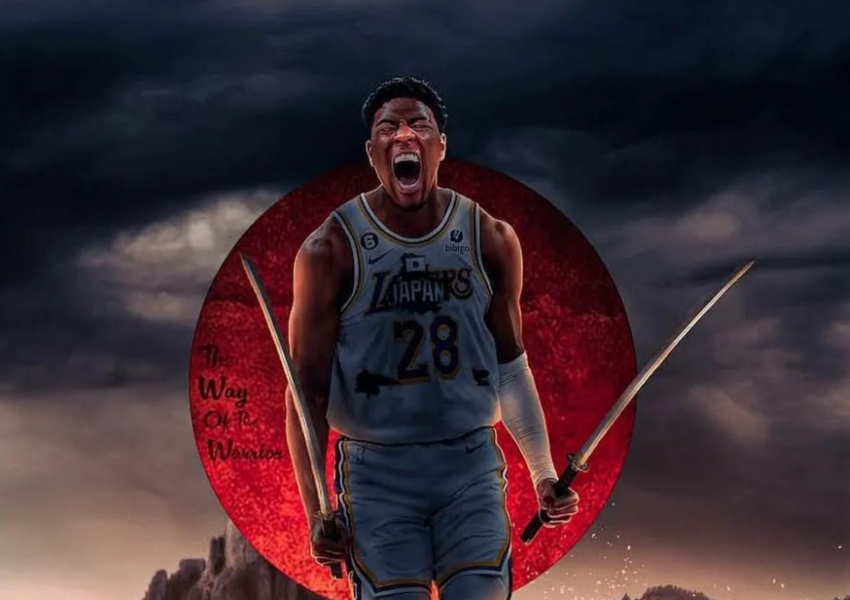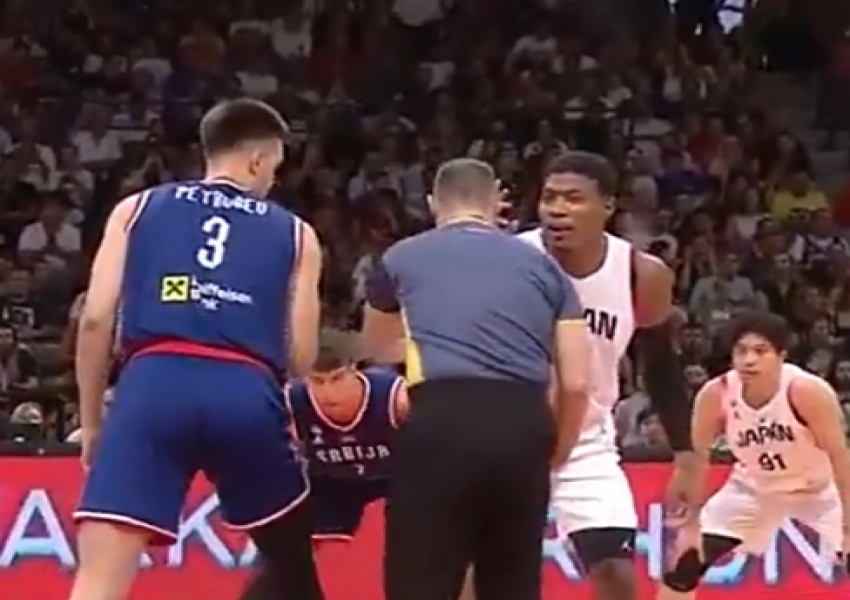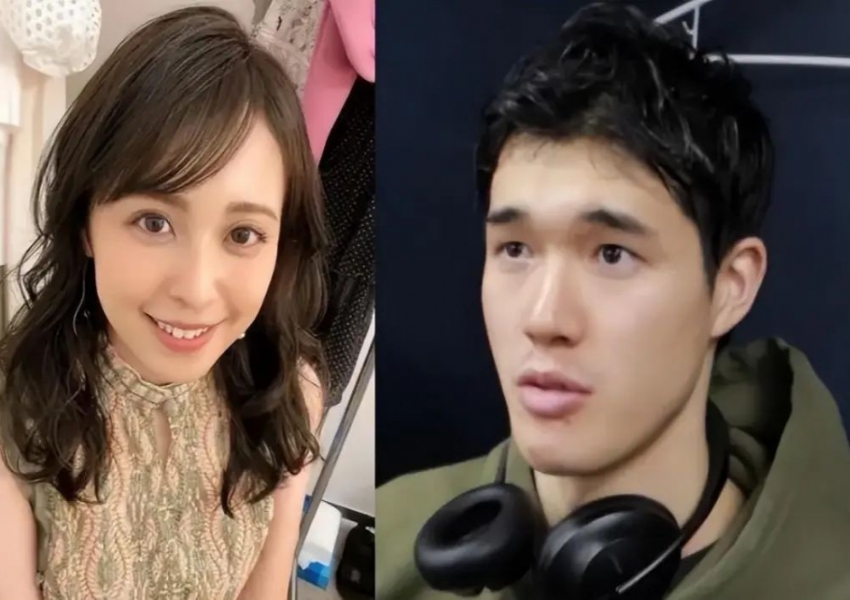100 Points Against Jokic! Farewell, China Basketball! Japan Emerges as Asia's Top Powerhouse
This summer, the fully assembled Japanese men's basketball team has shown significant strength. In their warm-up games, they narrowly lost to the German men's team by 21 points and to Nikola Jokic-led Serbia by just 19 points. In stark contrast, the Chinese men's basketball team suffered a crushing 49-point defeat to Germany in a warm-up game last year and was annihilated by Serbia in the World Cup group stage by 42 points. Notably, Japan scored exactly 100 points against Serbia, whereas it has been a long time since China broke the 100-point mark. The last instance was at the Hangzhou Asian Games last year when China scored 101 points against Chinese Taipei. This game marked the first and only time under coach Alex Du that China surpassed 100 points.

Although both Japan and China struggle to consistently score over 100 points, the data indicates that Japan has a better scoring ability. Since the beginning of this summer, Japan has played six warm-up games, averaging an impressive 89.8 points per game, nearly reaching the 90-point mark.

Rui Hachimura, who returned to the Japanese national team after several years, is a key player for the Los Angeles Lakers and excels in FIBA competition. Against Germany and Serbia, he scored 19 points and 5 rebounds, and 29 points, respectively. However, a significant issue has emerged: with Hachimura as the absolute core, other players on the Japanese team seem less capable of scoring. Last year's World Cup saw Japan secure a ticket to the Paris Olympics through extreme team basketball, with everyone contributing. In the recent game against Serbia, apart from Hachimura, only Yuta Watanabe scored in double figures with 10 points. This highlights the pros and cons of Hachimura's return to the team. It raises the question: can only players with NBA experience compete against the world's top teams like Germany and Serbia?

Hachimura currently plays for the Lakers, while Watanabe recently decided to leave the NBA. After opting out of his $2.6 million player option for the 2024-25 NBA season, Watanabe signed a record-breaking two-year, 800 million yen ($5.3 million) contract with the Chiba Jets in Japan's B.League, earning approximately 18.26 million yuan or around $2.6 million per year. By leaving the NBA, Watanabe has ensured he loses nothing financially, with numerous off-court income opportunities. He is now set for a comfortable life with plenty of money, less work, and closer proximity to home.
Interestingly, Patrick Beverley, a well-known NBA player, also turned down minimum salary offers from the Rockets and Pistons to join Israeli basketball club Hapoel Tel Aviv on a historic $2 million annual salary. If he helps the team win the EuroCup and qualify for the EuroLeague, he will receive an additional $1 million bonus. Beverley's reasoning was straightforward: "I'm 36 and want the best return."
While the NBA remains the pinnacle of basketball for many, it is not always the best place for players, especially non-American ones, to end their careers. In a few years, we might see Hachimura return to Japan's domestic league with an even more lucrative contract than Watanabe's two-year, 800 million yen deal.
Undoubtedly, Japanese basketball is on the rise, and anything is possible. For the upcoming Paris Olympics, Japan aims to reach the quarterfinals and stun the world, despite being in a "group of death" with Germany, France, and Brazil.
The rise of Japanese basketball can be attributed to several factors. First, the inclusion of players with NBA experience like Hachimura and Watanabe significantly boosts the team's competitiveness. Their ability to perform at high levels against top-tier international competition elevates the overall standard of the team. Hachimura's scoring ability and physical presence, coupled with Watanabe's versatile skills, make them invaluable assets for Japan.
Second, the development of domestic leagues such as Japan's B.League has provided a solid foundation for nurturing local talent. The league's growth has attracted high-level players and increased the competition, thereby improving the quality of play. The financial incentives offered by the B.League have also enabled Japanese players to earn competitive salaries without leaving the country, which helps retain talent domestically.
Furthermore, the strategic and disciplined approach of the Japanese team has proven effective. They have embraced a style of play that emphasizes teamwork, ball movement, and disciplined defense. This approach was evident in their success during the World Cup, where they secured an Olympic berth by playing cohesively and maximizing each player's strengths.
The coaching staff also deserves recognition. Their ability to blend the talents of NBA players with the rest of the team has been crucial. Managing egos and ensuring that every player understands their role within the team framework is a delicate balance, and Japan's coaches have managed it well.
In contrast, the Chinese men's basketball team has struggled to find its footing. Despite having talented players, they have faced significant challenges in international competition. The lack of a clear development path and inadequate integration of NBA-level talent have hindered their progress. Additionally, the Chinese team has struggled with consistency and adapting to the fast-paced, high-intensity nature of international play.
The comparison between Japan and China highlights the importance of a well-rounded development system and the integration of international experience. Japan's ability to combine local talent with NBA-caliber players has set them apart and positioned them as Asia's top basketball powerhouse.
Looking ahead, the Japanese team has set ambitious goals for the Paris Olympics. While their group stage opponents—Germany, France, and Brazil—are formidable, Japan's recent performances indicate that they are capable of competing at the highest level. Achieving their goal of reaching the quarterfinals would be a significant milestone and further solidify their status as a rising basketball nation.
Japan's ascent in basketball is not just a result of individual talent but a collective effort involving players, coaches, and the basketball infrastructure. Their journey from being an underdog to a contender on the global stage is a testament to their dedication and strategic vision. As they continue to develop and refine their approach, the future looks promising for Japanese basketball.
In conclusion, while China remains a significant player in Asian basketball, Japan's recent success and strategic growth have positioned them as the new powerhouse. Their ability to adapt, integrate talent, and perform on the international stage sets a new benchmark for Asian basketball. As they prepare for the Paris Olympics, all eyes will be on Japan to see if they can continue their impressive trajectory and make a lasting impact on the global basketball scene.
Copyright Statement:
Author: focusnba
Source: FocusNBA
The copyright of this article belongs to the author. Reproduction is not allowed without permission.
Recommended Blog
- Former Top Shooter and Team USA Member: Why No One Wants Joe Harris
- 21+9+5 Per Game! Rockets' Future Cornerstone: Is Alperen Şengün Worth a Max Contract?
- S-Tier Move! Champion Shooter Stays, $435 Million a Year, Celtics' Dismantling Countdown?
- Averaging 16+9! Is Third-Year Mobley Worth $224 Million Over Five Years?
- Latest 8-for-1 Trade Proposal: Warriors, Lauri Markkanen! The NBA's Wild West is About to Get Wilder...
- Promoted! China Basketball Permanently Bans Lin Wei? A Sophomore Already Leading His Team
- Two Weeks Without an Offer: Why Isn't Anyone Grabbing a Former Near All-Star with Career Averages of 20+5?
- Why Isn't He Worth More? One Rising Star with 19+ PPG Gets $270M, Another Becomes Trade Bait
- $160 Million Over Four Years? Really? Averaging 14+4+1, Yet Asking for the Highest Salary on the Team
- From Rising Star to Suspended Player: How Long Can the NBA Tolerate Ja Morant's Self-Destructive Path?